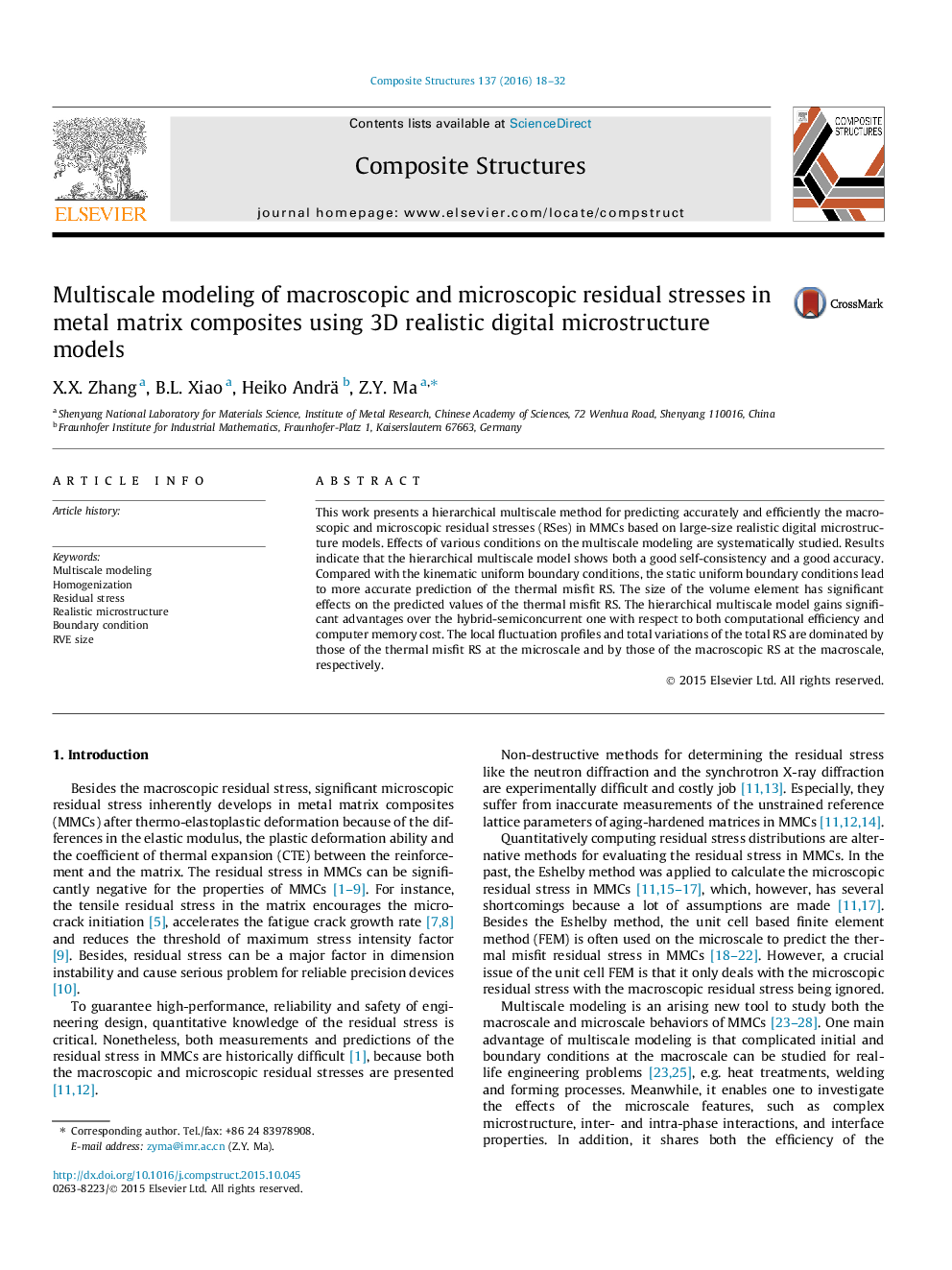| Article ID | Journal | Published Year | Pages | File Type |
|---|---|---|---|---|
| 6706251 | Composite Structures | 2016 | 15 Pages |
Abstract
This work presents a hierarchical multiscale method for predicting accurately and efficiently the macroscopic and microscopic residual stresses (RSes) in MMCs based on large-size realistic digital microstructure models. Effects of various conditions on the multiscale modeling are systematically studied. Results indicate that the hierarchical multiscale model shows both a good self-consistency and a good accuracy. Compared with the kinematic uniform boundary conditions, the static uniform boundary conditions lead to more accurate prediction of the thermal misfit RS. The size of the volume element has significant effects on the predicted values of the thermal misfit RS. The hierarchical multiscale model gains significant advantages over the hybrid-semiconcurrent one with respect to both computational efficiency and computer memory cost. The local fluctuation profiles and total variations of the total RS are dominated by those of the thermal misfit RS at the microscale and by those of the macroscopic RS at the macroscale, respectively.
Related Topics
Physical Sciences and Engineering
Engineering
Civil and Structural Engineering
Authors
X.X. Zhang, B.L. Xiao, Heiko Andrä, Z.Y. Ma,
